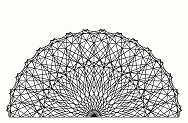


 |
 |
 |
Physiology is the integration of biochemical processes. It is too abstract and complex for incompetents in science. Throughout the 1950s and 60s, yeast scientists were looking for a substance that causes yeasts to form spores. They knew there was a trigger mechanism for spore formation, because once the process started, it would go to completion. But they couldn't determine what triggered the process, so they were looking for a ridiculous chemical that would trigger the process—testing every chemical on the shelf. In 1968, a botanist in the Netherlands, A.F. Croes, looked at graphs of energy metabolism and said that an energy peak occurs just when sporulation begins, and the correlation indicates that the energy peak is the cause of sporulation. Two years later, I combined nutritional studies with respiration measurements and found direct evidence for an energy peak being the cause of sporulation. About then, yeast physiologists switched form traditional physiology to molecular studies. They were at wits end trying to study physiology with no concept of how to proceed. But molecular biology covers such a wide range of studies that they could find something in it to call physiology. That transition to molecular left a lot of yeast physiology unstudied. Something similar happened in mushroom science. Mushroom scientists are still looking for a substance that causes a mushroom to form. During the 1980s and 90s, they assumed it must be acetylene, because someone found acetylene in mushroom casing. Now they assume it must be a bacterium, since there are plenty of bacteria in mushroom growing media. It's as ridiculous as looking for a substance that causes a tree to form. So of course mushroom scientists also turned to molecular studies. In studying the morel mushroom, they separated proteins and DNA looking for relevance. In separating enzymes for the TCA system, they found about three to five micro differences (allotypes) for each enzyme. Why the differences, they had no clue, so they tried to use the information to identify species. Those differences create phenotypic variation, which means a difference in expression for the same DNA. Some genes are turned on, while others are turned off. My information on the morel mushroom shows extreme phenotypic variation unlike any other species. And the reason is because yeasts are highly dependent upon phenotypic variation, while the morel mushroom is evolving from a yeast. The morel needs much phenotypic variation just as yeasts do because of problematic gene exchange with ascospores. What it means is that allotypic differences are not suitable for identifying species, because they vary within species. There has statistically been no two morel phenotypes exactly the same. Incompetents in science (nonscientists even more so) assume that science is creating a hypothesis and testing the hypothesis. There are no tests for the complex questions of modern science. Yet bureaucrats require most scientists (not the top guns) to sit at a desk and design an experiment to produce a required result. Corruption creates the concept that you start at the end-point of everything and find a method of rationalizing the result, such as deciding that there will be 1°C temperature increase upon doubling the amount of carbon dioxide in the air and contriving a mathematics that produces that result. Modern science requires pushing technology to its limits to extract new information. The results are always surprising due to the complexities of nature. There is no imagining and predicting involved. Such subjectivity could only corrupt the process.
|
|
||||||||||||||
 |
 |
 | ||
 |
 |
 |
||